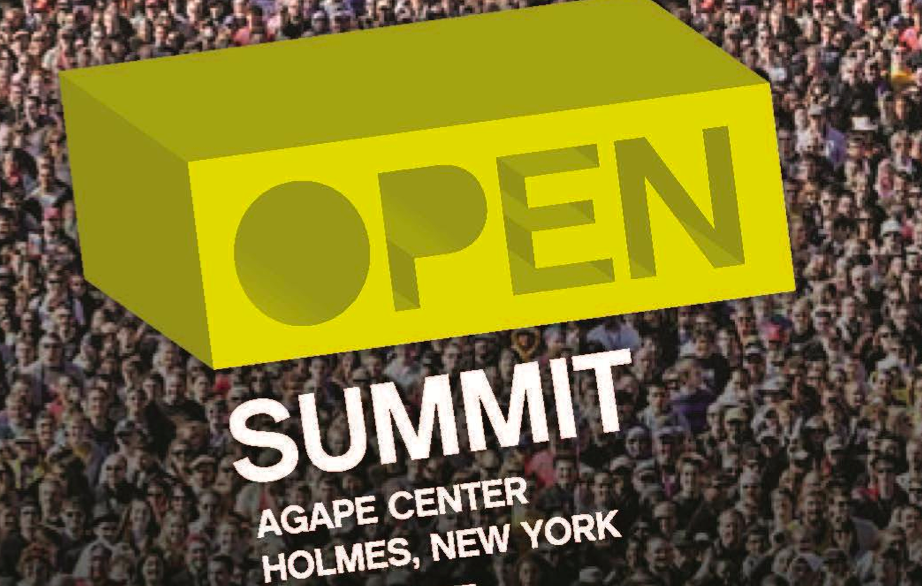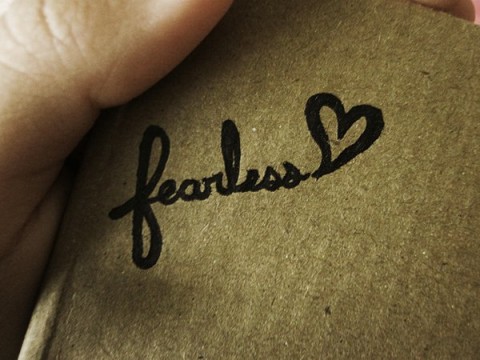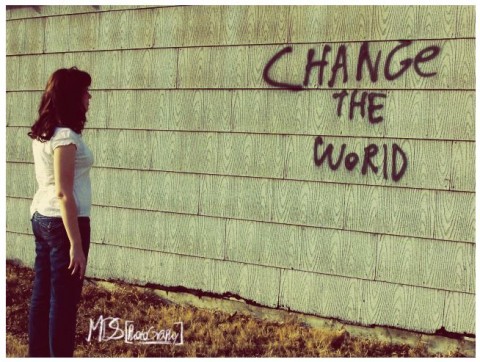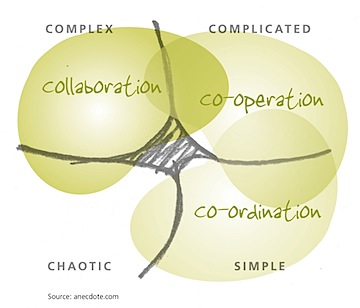Tag Archive: power
January 29, 2013

Something BIG happened on Monday, January 21, 2013. In his second inaugural address President Obama made an unapologetic link between the struggles for liberation and our nation’s evolutionary thrust.
We, the people, declare today that the most evident of truths—that all of us are created equal—is the star that guides us still; just as it guided our forebears through Seneca Falls and Selma and Stonewall; just as it guided all those men and women, sung and unsung, who left footprints along this great Mall, to hear a preacher say that we cannot walk alone; to hear a King proclaim that our individual freedom is inextricably bound to the freedom of every soul on earth.
Read More
January 27, 2013

The following post has been reblogged from our friends at yes! Magazine. We hope you enjoy it as much as we did!
Nature surrounds us with expressions of the organizing principles that make possible life’s exceptional resilience, capacity for adaptation, creative innovation, and vibrant abundance.” Read on as David Korten outlines how paying attention to natural systems can help us develop human systems that will sustain us for the long haul.
Read More
January 22, 2013

I keep making references to Steven Johnson’s book, Future Perfect. That’s because I find it to be one of the best articulations of what has become possible in this networked world. I am seduced by the idea of peer progressivism.
I have long held the hypothesis that those of us who have committed our lives to social transformation should be able to find a significant competitive advantage in a world of networks. Our ethos should be one of sharing, one of working together, one of catalyzing our collective power. Our values resonate with what is possible today. But the time to step into this opportunity is right now – right as it is emerging.
Read More
January 16, 2013

I was recently turned on to the work of Louise Diamond by the Plexus Institute. Diamond has been bringing insights from the dynamics of complex systems to peace building work for many years. Her efforts connect to a growing number of practitioners and thinkers who see the need to approach social change with an ecological and evolutionary mindset. In one of her papers, she extracts some of the “simple rules” that yield core practices for working in this way. Here I have adapted and adjusted some of them in application to network building for food systems change. Read More
January 14, 2013

I’ve been on a whirlwind. And it began with my facilitation of OPEN Summit. The first ever leadership gathering of the world’s leading Online Progressive Engagement Networks. Think MoveOn.org as replicated in the United Kingdom, Canada, Australia, New Zealand, India, Germany and Papua New Guinea. The great (and unbelievably sweet) Ben Brandzel had been dreaming this up for years!
Read More
January 14, 2013

As they neared their 15th anniversary, the Case Foundation published “To be Fearless” as both a reflection on its work and a challenge to philanthropy and the social sector. The following are excerpts from this report, written by Cynthia Gibson and Brad Rourke for the Case Foundation. (“To Be Fearless,” The Case Foundation, 2012.)
Read More
December 27, 2012

IISC would like to share our Top 5 most influential post of 2012! Join us until the New Years Eve when we reveal our number 1 blog post!
The following post began as a response to FSG’s lastest contribution to its work around “collective impact” on the Standford Social Innovations Review blog. There is much value in the additional details of this cross-sectoral approach to creating change, and I especially appreciate what is highlighted in this most recent piece regarding the strengths and weaknesses of different kinds of “backbone organizations” to support and steer the work. In the ensuing conversation on the SSIR blog, there is a comment from an FSG staff person about the importance of building trust in launching these efforts, and it was from this point that I picked up . . .
With deep appreciation for the good work of FSG in helping to codify this important approach, I wanted to add that from our experience at the Interaction Institute for Social Change, helping people develop the skills of process design and facilitation is of paramount importance in cultivating trust and ultimately realizing the promise of large-scale multi-stakeholder collaborative efforts. Read More
December 26, 2012

IISC would like to share our Top 5 most influential post of 2012! Join us until the New Years Eve when we reveal our number 1 blog post!
Fast Company’s has a recent cover story on the new and chaotic frontier of business.
Despite recession, currency crises, and tremors of financial instability, the pace of disruption is roaring ahead. The frictionless spread of information and the expansion of personal, corporate, and global networks have plenty of room to run. And here’s the conundrum: When businesspeople search for the right forecast–the road map and model that will define the next era–no credible long-term picture emerges. There is one certainty, however. The next decade or two will be defined more by fluidity than by any new, settled paradigm; if there is a pattern to all this, it is that there is no pattern. The most valuable insight is that we are, in a critical sense, in a time of chaos.
Read More
December 18, 2012

Andrew Zolli is a long time friend of the Interaction family. His recent piece on the New York Times, Learning to Bounce Back, reminded me of why Marianne Hughes, founder and former Executive Director of IISC has been raving about his new book on resilience.
Read More
December 4, 2012

I like to describe IISC as a collaboration shop. We look at collaboration through three lenses. When looking through the lens of networks we are acknowledging a shift from “complicated to complex” (see image). We often rely on the Cynefin framework to encourage an attitude of exploration, a more open attitude than the quest for technical answers that obsesses so much of our work for social change.
I had not seen the overlay of complexity and collaboration that Shawn Callahan articulates so well. I love the work of our friends at Anecdote, and this blog post is a must read:
Read More
November 19, 2012

A group of us from IISC attending Facing Race, the Applied Research Center’s bi-annual conference. For me (and many others, judging by the #FacingRace Twitter stream), it was an energizing, affirming and enlightening experience. Over the next few days, we will offer details about what we heard and learned. I want to begin with a few big picture ideas.
Read More
November 16, 2012

I recently got to attend two events with racial equity educator and filmmaker, Shakti Butler, in Boston. Her new film, Cracking the Codes: The System of Racial Inequity, is full of stories that help to paint the picture of how race and racism operate in the U.S. – at the internal, interpersonal, institutional and structural levels. Drawing on the work of john powell and others, Shakti emphasizes that racial inequities are constantly shapeshifting, that racism is a dynamic system with multiple layers functioning simultaneously, and that we are all wounded as a result.
Read More











